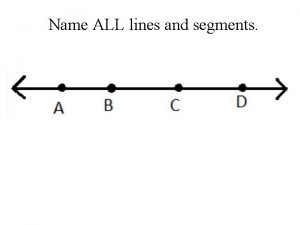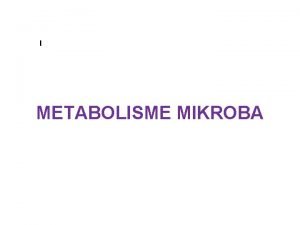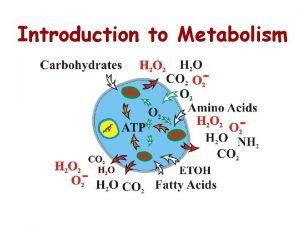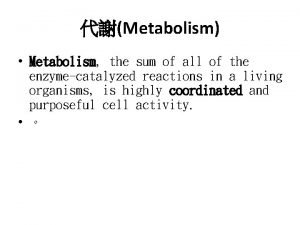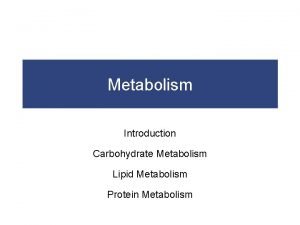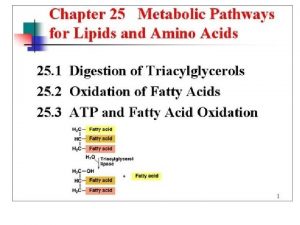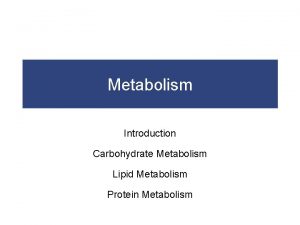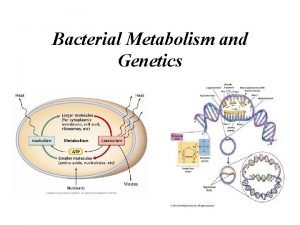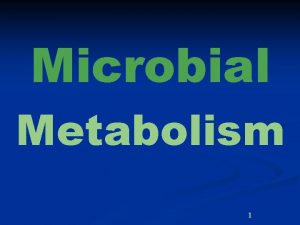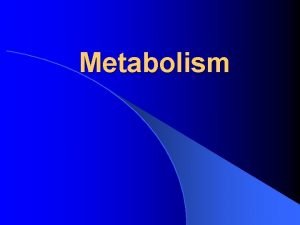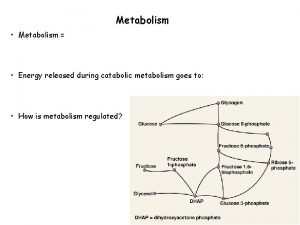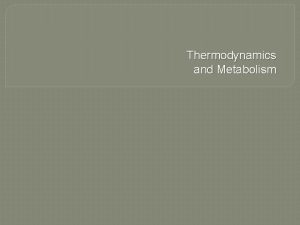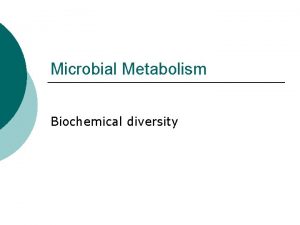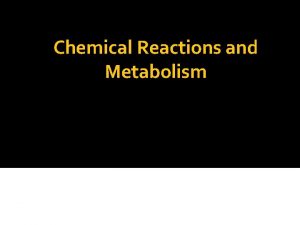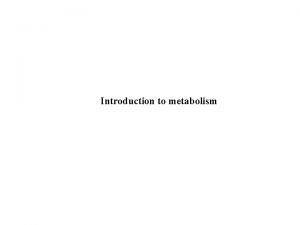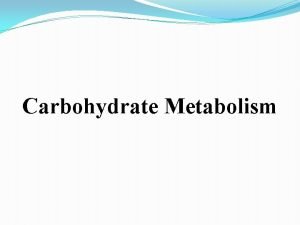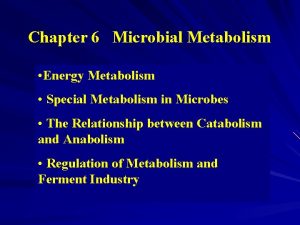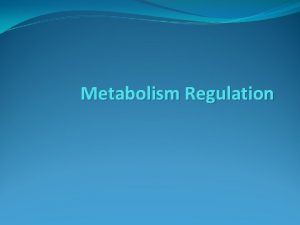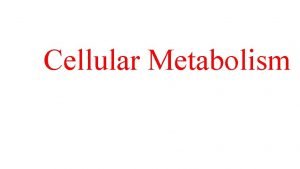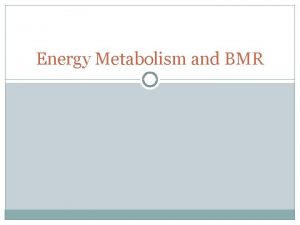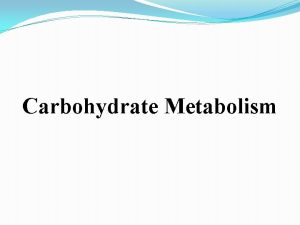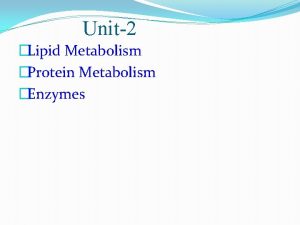METABOLISM The concept of metabolism Metabolism all the

METABOLISM

The concept of metabolism • Metabolism = all the chemical reactions taken place inside the living organisms • Metabolic reactions produce different life processes, e. g. – – – photosynthesis respiration movement growth reproduction

Types of metabolism • Catabolism : – breaking down of complex organic molecules into simpler molecules, e. g. respiration

Types of metabolism • Anabolism – building up of complex organic molecules from simple molecules, e. g. photosynthesis

Control of metabolism • Metabolic reactions can be controlled and speeded up by enzymes – metabolic reactions would be too slow to occur if no enzymes are present!

Mechanism of enzyme action • Each enzyme has an active site

Mechanism of enzyme action • Place Each enzyme where substrate only allows binds its specific with thesubstrate enzyme to fit with its active site exactly

Mechanism of enzyme action • The enzyme and substrate molecules combine to form a temporary structure called enzyme-substrate complex

Mechanism of enzyme action • The product molecules are then formed and they escape from the active site

Mechanism of enzyme action • The product molecules are then formed and they escape from the active site • The active site is free to attach to other substrate molecules

This hypothesis to explain the specificity of enzyme action is called

Nature and properties of enzymes • Biological catalyst found within substance living organisms which can speed up a chemical reaction • Proteins in nature • Specific in action – one kind of enzyme will catalyse only one kind of chemical reaction

Nature and properties of enzymes • Catalyse reversible reaction in both directions • Action affected by temperature and p. H – high temperature and extreme p. H can denature enzymes protein in nature

Effect of temperature on enzyme activity • Low temperature : low kinetic energy possessed by the substrate and enzyme molecules Lower reaction rate (and enzyme activity) The enzyme becomes inactive

Effect of temperature on enzyme activity • Higher temperature : more kinetic energy possessed by the substrate and enzyme molecules Higher reaction rate (and enzyme activity)

Effect of temperature on enzyme activity • The temperature which allows the highest enzyme activity is called the optimum temperature

Effect of temperature on enzyme activity • At temperature higher than the optimum temperature, the shape of the active site is changed substrate can no to longer bind to the active site of the The enzyme is said be denatured enzyme

Graph showing effect of temperature on enzyme activity

Effect of temperature on enzyme activity • Enzymes become inactive but not denatured at low temperatures They can regain catalytic function when the temperature increases

Effect of temperature on enzyme activity • Denaturation is a permanent process When an enzyme is denatured, its catalytic function is lost permanently, and cannot be restored even it is put in lower temperature

Effect of temperature on enzyme activity • Different enzymes may have different optimum temperature • The optimum temperature of many enzymes in human body is not 37 o. C, even though this is our body temperature! – Our body temperature can provide a better environment for the enzymes in our bodies to work

Effect of p. H on enzyme activity • Different p. H of medium Optimum enzymes p. H : the higher p. H may value orhave lower at different which than optimum the enzyme optimum p. H can denature has p. Hsthe highest the enzyme activity
- Slides: 22
